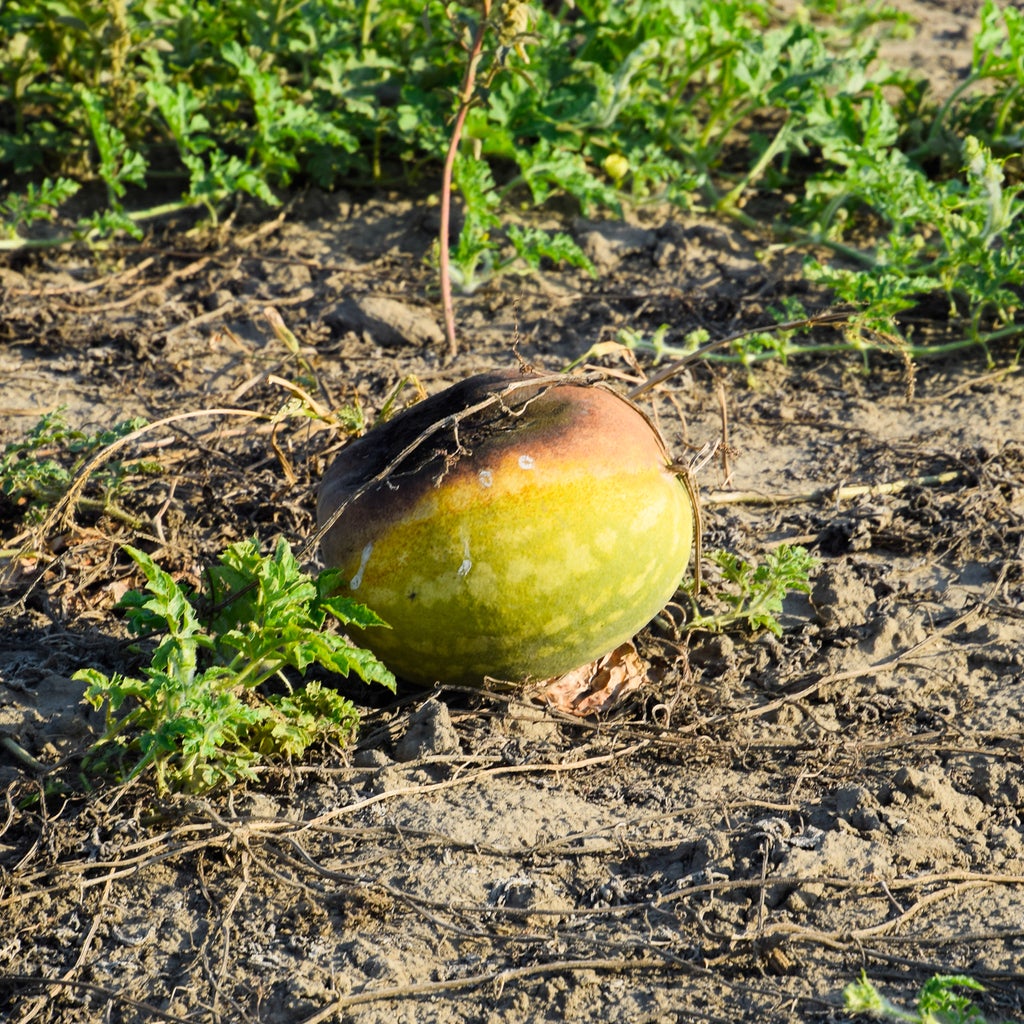Watermelons Rotting On The Vine: What To Do For Watermelon Belly Rot


Sign up for the Gardening Know How newsletter today and receive a free copy of our e-book "How to Grow Delicious Tomatoes".
You are now subscribed
Your newsletter sign-up was successful
Fresh watermelon right from your garden is such a treat in the summer. Unfortunately, your crop may be ruined by belly rot. Belly rot in watermelons is so disappointing, but there are steps you can take to prevent and control this damaging infection.
What Causes Watermelon Belly Rot?
When the bottom of watermelon is rotting, the fruit is probably suffering from a fungal infection. There are a few species of fungus that can cause this problem, including Pythium aphanidermatum, Rhizoctonia and Sclerotium rolfsii. These fungi are more likely to cause a problem during hot weather, humid weather, and after a lot of rain. You may also be more likely to see it in your watermelon patch if your soil doesn’t drain well.
Symptoms of Belly Rot in Watermelons
Watermelons rotting on the vine from belly rot will first show signs on the underside of the fruit that is resting on the ground. The area of the watermelon affected will begin to look water-soaked. It will then begin to sink in, and you’ll see a white fungus. If you cut into the fruit, the rind may be brown or black.
Preventing and Treating Watermelon Belly Rot
Treating a watermelon already rotting isn’t possible, although you can cut around the rotten part. The best way to avoid belly rot is to prevent it from occurring. Give your watermelons the best possible conditions to prevent the fungal infection. This means planting in areas of the garden with soil that drains adequately if possible.
Other preventative measures you can take include keeping the watermelon off the ground as they grow and develop. Use a cage, plastic mulch, stakes, straw mulch or other materials to protect the fruit from the ground. You can even use a wooden board for the fruit to rest on as it matures.
Taking these steps is especially important if you have a lot of rain or if the weather is consistently moist and humid and your soil isn’t draining.
Sign up for the Gardening Know How newsletter today and receive a free copy of our e-book "How to Grow Delicious Tomatoes".

Mary Ellen Ellis has been gardening for over 20 years. With degrees in Chemistry and Biology, Mary Ellen's specialties are flowers, native plants, and herbs.